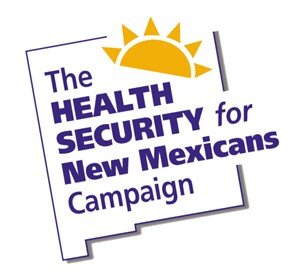We were interested in two bills during the 30-day legislative session that ended on February 20.
Drug Importation Program
Senate Bill 1, the Wholesale Prescription Drug Importation Act, sailed through the legislature, passing both houses unanimously. As one of the governor's priority bills, it will likely be quickly signed into law.
What will SB 1 do? SB 1 will set up a system for importing pharmaceutical drugs from Canada (and, if allowed by the federal government in the future, from other countries). New Mexicans now pay about twice as much as Canadians for brand-name drugs.
Specifically, SB 1 will create an Office of Wholesale Drug Importation at the NM Department of Health. This new office will negotiate with the federal government for approval of a Canadian wholesale drug importation plan to bring safe, lower-cost drugs into New Mexico, which lowers prices for consumers. (Not all drugs will be included in the plan.)
We supported this bill because implementing a drug importation program should significantly reduce drug costs for New Mexicans, while ensuring drug safety. Setting up such a process will also help to expedite bulk purchasing of pharmaceutical drugs (whether through importation or another mechanism) under the Health Security Act.
While questions have recently been raised about the feasibility of drug importation programs (Canada is not a fan!), seeing if it's possible to take advantage of this new federal opportunity makes sense.
Global Budgets for Hospitals
Senate Memorial 9, the All Payer Global Hospital Budget Task Force bill, did not fare as well as SB 1.
About global budgets and SM 9: This memorial would have set up a task force to explore how to implement global budgets for hospitals in New Mexico. Under a system of global budgets, hospitals are guaranteed a stable revenue stream, which could be particularly advantageous for our struggling rural hospitals. An independent agency negotiates these budgets.
A global budget system (which is included in the Health Security Act) is an alternative to the complicated charges that are creating enormous problems for so many patients and impacting health facility overhead costs. The Centers for Medicare and Medicaid Services (CMS) is currently providing substantial funds to states to implement global budget programs.
A task force tasked with investigating how to implement a global budget system could have offered a financially sustainable path forward for New Mexico health facilities, while providing relief to New Mexico patients facing inflated hospital prices and complex bills.
What happened during the session: SM 9 was assigned to the Senate Rules Committee and was heard on February 3. It was the last bill on the agenda, and there were only six committee members (three Democrats and three Republicans) left in the room by the time it was heard. The result? A 3-3 tie on a no-recommendation motion, which, had it passed, would have moved the bill out of the committee.
Although SM 9 appeared on the agenda multiple times in the final seven days of the session, it was not brought back up for reconsideration.
NM Hospital Association opposition: At the February 3 hearing, the NM Hospital Association was the only organization to testify in opposition to the memorial. (In contrast, the American Hospital Association--a national organization--is in favor of global budgets.)
This took us by surprise, as we had heard that the NM Hospital Association was open to exploring this approach. And, of course, the memorial would only have set up a task force; it did not actually call for implementation of a global budget system.
In fact, the NM Hospital Association went so far as to propose the complete removal of the words "global budgets" in the memorial and to change the purpose of the task force to explore "payment alternatives."
What are "payment alternatives"? "Payment alternatives" (alternatives to the standard fee-for-service arrangement) is a broad term, as there are at least 37 models to date. For the most part, these alternatives require financial investments and the ability to take on risk--serious challenges for financially vulnerable hospitals. Because of this, both the US Government Accountability Office and the American Hospital Association have reported that most alternative payment models have not been appealing to rural hospitals.
The global budget model, however, provides hospitals with a guaranteed stable revenue stream (which may include adjustments over the year) and does not require them to take on additional risk or find the money for investments in their operations.
To address the needs of rural hospitals, the State of Pennsylvania has received CMS approval to develop a Rural Health Model. Thirteen rural hospitals have voluntarily signed up to participate. In its announcement, CMS notes the following:
CMS believes this model will further CMS' goals of improving the health beneficiaries in rural areas, maintaining access to health care for rural populations, and determining the impact of an alternative payment model on rural providers, who have generally had lower rates of participation in alternative payment models. [emphasis added]
Working together: We were not the only ones in strong support of SM 9. We worked very closely with Health Action New Mexico and other allies on the bill, but ultimately the opposition of the NM Hospital Association--and the reality of a short 30-day legislative session--sank the memorial.
We were able, however, to educate many legislators about the importance of global budgets as a critical tool to help financially vulnerable hospitals survive. Many were sincerely puzzled by the opposition of the NM Hospital Association, especially as the association expressed concern for rural hospitals.
Moving forward: Now that the session is over, passage of the Health Security Act in 2021 is once again our major focus. And to be successful, we need your help. Please tell your friends about Health Security and continue to spread the word about this important health care solution!
